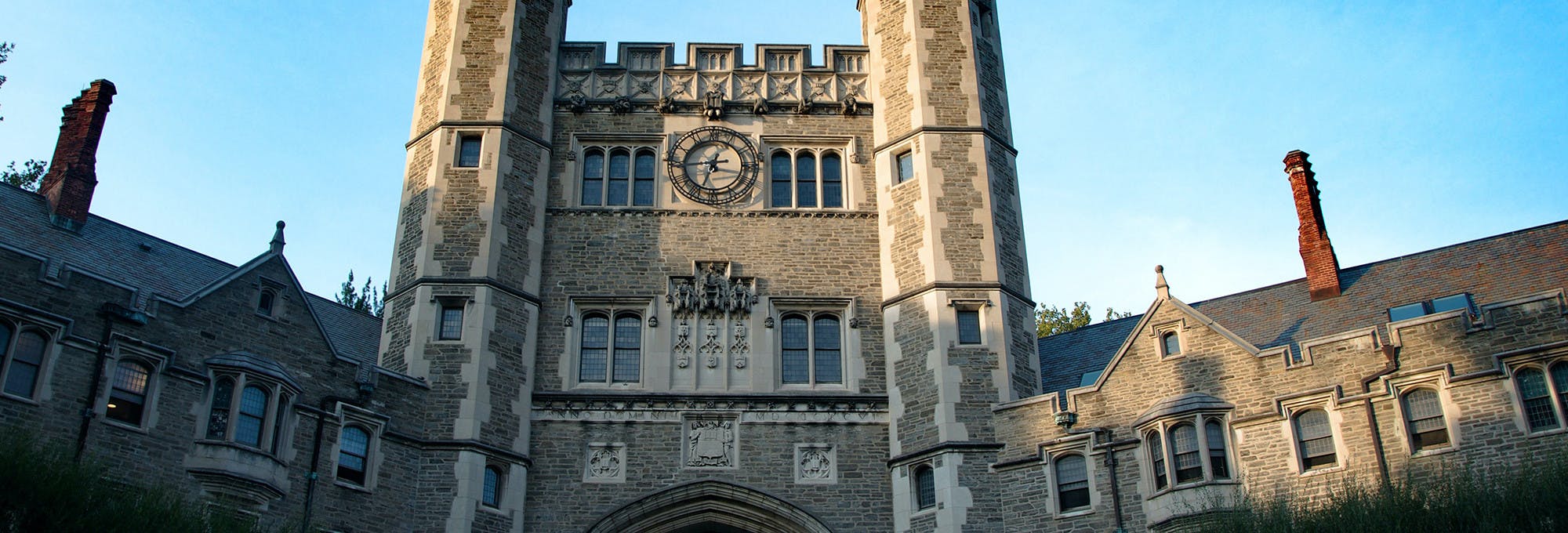
College Success
What Are the Liberal Arts in Education?
The article defines what liberal arts education is, explains the different degree fields, and lists possible professions you can do with the degree.
Jennifer Rivera
Subject Matter Expert

College Success
02.18.2023 • 6 min read
Subject Matter Expert
Learn what are Ivy League schools, the benefits of going, the challenges students face, the admissions process, and much more.
In This Article
The term “Ivy League” began as an insult. Sportswriter Caswell Adams didn’t want to write about them, so he coined the term to suggest the universities were known more for foliage-covered walls than football.
Today, these schools are known more for their academic and social prestige.
In this article, we’ll cover more details about Ivy League schools, the admissions process, alternative schools, and more.
“Ivy League" refers to a group of 8 highly selective colleges and universities in the United States. These schools were originally part of the Ivy League athletic conference, but over time, the name has become associated more with academics than sports.
These schools are some of the oldest, most prestigious, and most competitive universities in the US. Each of the Ivy League schools offers a high-quality education and top-notch learning facilities. Admission into an Ivy League school opens up a world of opportunities—both during and after college.
The Ivy League schools are:
Brown University - Providence, Rhode Island
Columbia University - New York City, New York
Cornell University - Ithaca, New York
Dartmouth College - Hanover, New Hampshire
Harvard University - Cambridge, Massachusetts
The University of Pennsylvania - Philadelphia, Pennsylvania
Princeton University - Princeton, New Jersey
Yale University - New Haven, Connecticut
Now let’s talk about the students admitted to Ivy League universities. They’re typically among the top performers in their high school class. They normally go on to successful careers in many different fields.
Students who attend these institutions of higher learning are typically exceptional academic performers. According to College Gazette, students accepted into Ivy League institutions have an average GPA of 4.0 with ACT scores above 30.
If you're looking for a challenging academic experience among the brightest minds in the country, an Ivy League school might be right for you.
Ivy League schools are also well connected with employers in various industries. They can provide access to unique career opportunities.
Additionally, alumni networks from Ivy League colleges are powerful. They can help with future job searches or networking connections.
Talk about an opportunity.
If you're looking for a top-notch education and a high-paying career, consider one of these prestigious institutions. But remember, getting admitted isn't easy. It requires hard work and dedication.
Ivy League schools are renowned for their academic excellence. Students who attend these schools learn from some of the best professors in their field, some of whom are Nobel and Pulitzer Prize winners.
An Ivy League education also offers unmatched resources and facilities. From world-class libraries to cutting-edge laboratories, students have access to everything they need to succeed.
Attending an Ivy League school gives students a competitive edge when applying for postgraduate jobs or graduate school. Employers and admission committees alike view Ivy League graduates as being among the best and brightest.
Here’s a bonus: students also get an exciting college experience in a competitive NCAA athletic conference. They can attend college sports and bond with the student body outside the classroom.
While the benefits of going to an Ivy League school are apparent, attending one of these schools comes with a downside.
Like being alone in a room with lions, the pressure to succeed can be enormous. With so much competition, students can quickly become overwhelmed, which leads to burnout.
The cost of attendance is prohibitively expensive, leaving many students saddled with debt before they even graduate. Ivy League schools have an average tuition of around $60,000 per year, compared to the national average at a public college of $10,423.
Because Ivy League schools are selective, it can be difficult to find a true sense of community on campus. Students who attend Ivy League schools must be willing to rise to the pressure of high academic rigor.
The admissions process at Ivy League schools has long been mysterious. Some say the process is completely random, while others believe legacy applicants have a significant advantage.
The truth is, how Ivy League schools choose their students is not one-size-fits-all. But some factors do play a role in the decision-making process.
Academic performance is likely to be a key consideration.
Ivy League schools have a low acceptance rate: less than 10%. That means you're up against some pretty stiff competition. But don't despair. You can improve your chances of getting accepted.
Make sure your grades and test scores are as high as they can be. Consider retaking the ACT or SAT after some tutoring sessions.
College admissions committees will be looking at these numbers closely. It's crucial to make a good impression on paper.
Another tip is to be sure to stand out in your extracurricular activities and essays. Admissions committees want to see well-rounded students with leadership skills.
Finally, remember the admissions process is highly subjective. Try to relax and be yourself. If you can submit your best admissions packet, you'll be much closer to enrollment at an Ivy League school.
In the end, the admissions committees at Ivy League schools are looking for well-rounded students who will contribute to the campus community.
Take the following tips into consideration when applying:
Know your goals for college
Volunteer for a worthwhile cause
Get solid letters of recommendation that highlight your skills
Take your time to write a quality college essay
Fill out your FAFSA (Free Application for Federal Student Aid) correctly
Apply to several schools
With many qualified applicants, getting into an Ivy League school is no easy feat. However, those admitted can rest assured that they have earned their place among the best and brightest students in the world.
Be sure to consider all your options when applying for college. Take the time to do your research and weigh your pros and cons. Find schools that fit you and apply. You’ll be well on your way toward the career you desire.
Some of the best colleges out there aren't Ivy League schools. And that's okay! These schools offer a quality education without the inflated price tag. Here are a few good picks:
This private research university is located in the heart of Los Angeles and is among the top 30 universities in the world, according to Times Higher Education university rankings. USC’s MBA program is one of the top MBA programs in the country and rivals many Ivy League schools.
This Jesuit institution started as a small liberal arts college in 1863. It’s located in one of the most vibrant cities in the US. The U.S. News & World Report ranks Boston College as one of the top 50 universities in the world.
This Atlanta-based university is known for its strong programs in business, law, and medicine. It ranks among the top 100 universities in the world, according to Times Higher Education.
This private research university is located in Nashville, Tennessee, and offers an excellent education at a fraction of the cost of Ivy League schools. In fact, Vanderbilt Law School ranks 17th in the nation per the U.S. News & World Report.
This world-renowned university is located in Houston, Texas, and offers a top-notch education at a reasonable price. This national university has a small student-to-teacher ratio and a student satisfaction rate of 97%. One bonus alternative to consider is Golden Gate University’s Degrees+ program, powered by Outlier.org. When it comes to high quality, the course lineup includes instructors from 7 out of 8 Ivy League schools, specifically:
Harvard University
Princeton University
Brown University
Columbia University
University of Pennsylvania
Yale University
Cornell University
The online college experience rivals some of the best schools out there with unbeatable tuition rates. It’s a great option when trying to save on college costs with transferable credits.
Should you apply to an Ivy League school? If you can get in, the benefits are clear. But if your grades and test scores aren’t quite up to par, don’t worry. Plenty of other excellent schools will give you a high-quality education.
Outlier (winner of TIME Best Inventions 2020) and Golden Gate University (#1 school for working professionals) have redesigned the experience of earning a college degree to minimize cost and maximize outcomes. Explore a revolutionary way to earn your college degree:

College Success
The article defines what liberal arts education is, explains the different degree fields, and lists possible professions you can do with the degree.
Subject Matter Expert

College Success
This article goes over how to work full time and go to school full time, the benefits of working, and tips on managing your time.
Subject Matter Expert

College Success
This article provides a list of the best part-time jobs for college students and how to combine a job with college responsibilities.
Subject Matter Expert